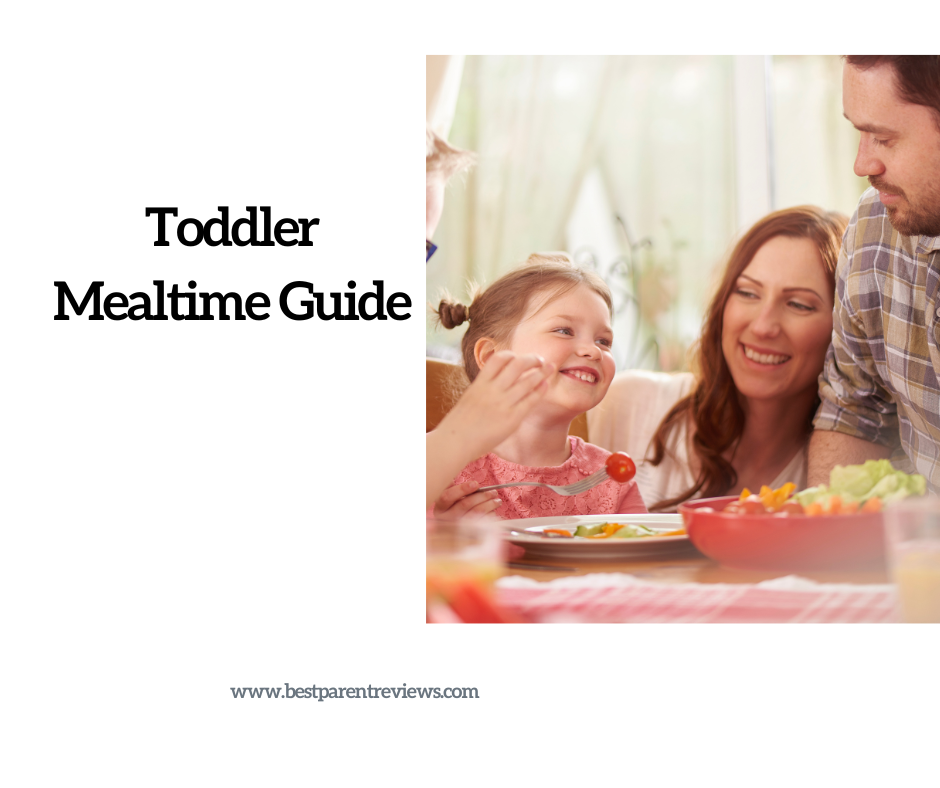Dinner is a time for sustenance and time for family bonding. It can be challenging to navigate and promote positive eating habits during toddler dinner because it has a lot of stimuli and is late in the day. Here are tips on optimizing the experience and promoting healthy eating habits at toddler dinner time.
Table of Contents
- I. Dinner – It’s a Daily Occurrence
- II. Understanding Toddlers’ Eating Habits
- IV. Toddler-Friendly Dinner Ideas
- VI. Empowering Tiny Tummies: Nurturing Independence and a Love for Healthy Eating!
- VIII. 🔍 A. Recap of Key Strategies for Successful Dinner Times
- Frequently Asked Questions: Nourishing Toddlers at Dinner Time
I. Dinner – It’s a Daily Occurrence

A. Importance of fostering healthy eating habits in toddlers
Toddlers and mealtimes can often be a challenging combination. From picky eating to food-throwing antics, getting our little ones to eat healthily can feel like an uphill battle. However, fostering healthy eating habits in toddlers is paramount for their overall well-being and development.
During the toddler years, children are rapidly growing and developing both physically and mentally. This makes it crucial to provide them with the necessary nutrients they need to support their growth.
By introducing a variety of nutritious foods early on, we can set the stage for a lifetime of healthy eating habits. But it’s not just about the physical benefits. Establishing healthy eating habits in toddlers also helps them develop important social skills around food.
Sharing meals as a family encourages positive interactions and teaches children about manners, conversation, and cultural traditions.
Moreover, research by the CDC has shown that early exposure to a wide range of flavors and textures increases a child’s acceptance of diverse foods later in life.
By offering a balanced diet that includes fruits, vegetables, whole grains, lean proteins, and dairy products, we can expand their palate and reduce the likelihood of developing picky eating habits.
Fostering healthy eating habits in toddlers is vital for their growth, development, social skills formation around food, and long-term dietary preferences.
B. The challenges of mealtime with toddlers
Mealtime with toddlers can be a wild ride. Just when you think you’ve mastered the art of feeding your little one, they throw a curveball that leaves you scratching your head. From picky eating to food-throwing fiascos, the challenges of mealtime with toddlers are real.
- Toddlers are notorious for their selective taste buds. One day they devour peas like there’s no tomorrow, and the next day they refuse to even look at them. It can be frustrating and worrisome as parents strive to foster healthy eating habits in their little ones.
- Then there’s the issue of independence. Toddlers want to do everything by themselves, including feeding themselves. This newfound autonomy often leads to messy meals where more food ends up on the floor than in their mouths. It requires patience and some serious stain-remover skills.
- Distractions abound during mealtime. Whether it’s a toy that suddenly becomes infinitely more interesting than their plate or a sibling who engages in an impromptu food fight, maintaining focus on eating can be a real challenge for toddlers. But fear not! Despite these hurdles, there are ways to navigate mealtime successfully with your toddler.

C. Setting the Stage for Toddler 2-Year-Old Dinner
Mealtime with toddlers can be a chaotic and challenging affair, but it’s also an opportunity to instill healthy eating habits that will last a lifetime. By setting the stage for positive eating experiences, you can create an environment that promotes good nutrition and fosters a healthy relationship with food.
- It’s crucial to establish a routine. Consistency is key when it comes to mealtimes.
- Aim for regular meal and snack times throughout the day, so your toddler knows what to expect and feels more secure. This routine will help them develop hunger cues and avoid unnecessary snacking.
- Make mealtimes enjoyable. Create a pleasant atmosphere by sitting together as a family at the table without any distractions like television or phones. Encourage conversation and engage your toddler in age-appropriate discussions about food.
- Make meals colorful and visually appealing by including a variety of fruits, vegetables, and other nutritious foods.
- Be a role model for your toddler. Children learn by observing their parents’ behaviors, so demonstrate healthy eating habits yourself. Show enthusiasm for trying new foods and don’t force your preferences onto them. Instead, encourage exploration of different flavors while respecting their tastes.
II. Understanding Toddlers’ Eating Habits
A. Developmental stages and nutritional needs
Understanding the developmental stages and nutritional needs of toddlers is a crucial aspect of fostering healthy growth and well-being. From ages 1 to 3, toddlers undergo rapid physical and cognitive development, making it imperative to meet their specific nutritional requirements.
During this period, their little bodies demand a balanced intake of essential nutrients such as iron, calcium, healthy fats, and proteins to support the development of muscles, bones, and cognitive functions. Being attuned to the evolving needs of toddlers ensures that they receive the necessary building blocks for a robust foundation, laying the groundwork for a lifetime of good health and vitality.
B. Common eating behaviors in toddlers
Navigating toddler eating habits can be like a rollercoaster ride. From picky eating to food throwing, these behaviors are often a part of their development. Don’t be alarmed – it’s normal! Encourage exploration, be patient with their changing tastes, and offer a variety of textures and flavors to keep mealtime engaging.
C. The role of routine and structure in mealtime
Toddlers thrive on routine, and mealtime is no exception. Establish a consistent schedule for meals and snacks, creating a sense of security for your little one. Keep distractions minimal during meals, allowing them to focus on eating. Predictable routines help toddlers understand what to expect, making mealtime a more enjoyable and stress-free experience for everyone.
III. 8 Tips for Successful Dinner Times
A. Consistent Meal Schedule
🕒 Tip 1: Set the Stage for Success
Consistency is key! Establish a meal schedule that works for your family. Predictability helps little ones feel secure, making dinner less of a battleground.
B. Positive Eating Environment
🪑 Tip 2: Choose Your Battle (Seating)
Select appropriate seating arrangements to keep little ones engaged. High chairs, booster seats – whatever works! Make it comfy, so they’re excited to take a seat at the family table.
🚫 Tip 3: Distraction-Free Zone
Reduce dinner table distractions. Say goodbye to screens and hello to quality family time. Keep it simple, focus on the food, and watch the magic happen.
🤝 Tip 4: Family Fiesta
Mealtime isn’t just about eating; it’s a family affair! Create a positive atmosphere with fun conversations and laughter. Turn dinner into a mini-party, making it the highlight of your toddler’s day.
C. Variety of Foods
🍽️ Tip 5: Texture and Flavor Adventures
Encourage your tiny foodie to explore textures and flavors. From crunchy veggies to smooth dips, let their taste buds dance! Variety not only keeps them interested but also ensures a balanced diet.
🤷 Tip 6: Picky Eater Solutions
Got a picky eater on your hands? Fear not! Sneak in the variety by disguising veggies in creative ways. And if that fails – don’t be afraid to let them turn away food. Your toddler is not going to starve themselves. If they eat less in one meal – they will make up for it over time.
D. Model Healthy Eating
🌟 Tip 7: Be the Food Hero
Show them how it’s done! Be a positive food role model by embracing healthy choices. Your excitement about nutritious foods will rub off on them, making broccoli the coolest veggie in town.
👩🍳 Tip 8: Little Chefs in the Making
Involve your mini-me in meal prep! Tiny hands can stir, pour, and sprinkle. Making it a joint effort not only teaches them about food but also makes them proud of their culinary creations.
In the world of toddler dinners, every tip counts! Make mealtime a joyous experience for both you and your little one, creating memories one bite at a time. 🌈✨
IV. Toddler-Friendly Dinner Ideas
A. Balancing Essential Nutrients
🥦 Tip 1: Power-Packed Plates
Ensure your toddler’s plate is a nutrient powerhouse! Balance their meals with a mix of carbohydrates, proteins, healthy fats, vitamins, and minerals. It’s like a mini feast for their growing bodies.
B. Creative and Nutritious Meal Ideas
🍇 Tip 2: Fruity Feasts
Incorporate a rainbow of fruits into their diet. From berry-loaded breakfasts to fruity snacks, make it vibrant! The natural sweetness is a win-win, keeping them healthy and happy.
🥑 Tip 3: Veggie Variety
Vegetables are your secret weapon. Sneak them into pasta sauces, blend them into smoothies, or turn them into colorful snacks. The more colors, the better – it’s like a veggie treasure hunt!
🍗 Tip 4: Protein Power and Whole Grain Goodness
Opt for lean proteins like chicken, fish, and beans. Pair them with whole grains like quinoa, brown rice, or whole wheat pasta for a satisfying, nutrient-packed meal. Fueling their adventures with wholesome goodness!
🚫 Tip 5: Limiting the Sugar and Processed Fiends
Beware of the sugar monsters! Minimize sugary and processed foods, swapping candies for fruit bites and sodas for refreshing water. Keeping it real and wholesome ensures a healthier journey for your little one.
C. Gradual Introduction to New Foods
🍠 Tip 6: Slow and Steady
Wins the Food Race Introduce new foods with patience. Start small, adding one new item at a time. Let your tiny taste tester get used to the flavors and textures before expanding their culinary horizons. It’s a gradual food adventure, not a sprint!
👶 Tip 7: Tiny Tastebud Exploration
Turn new food introductions into a fun experience. Use creative names, arrange foods in playful shapes, and let them explore with their hands. Making it an adventure encourages positive associations with trying new things.
In the kitchen of toddler nutrition, you’re the maestro crafting a symphony of flavors and nutrients. Balancing, creating, and introducing – every meal is a chance to fuel their growth and create a lifelong love for healthy eating. Bon appétit, little foodies! 🍽️🌟
V. Overcoming Common Mealtime Challenges
A. Dealing with Food Refusal and Picky Eating – Tips for an Easy Toddler Dinner
🧘 Tip 1: The Art of Patience and Persistence
Tackling picky eaters requires a Jedi-level mix of patience and persistence. Don’t be discouraged by the eye-rolls and rejected bites. Keep offering a variety of foods, and remember: Rome wasn’t built in a day, and neither are adventurous eaters.
🍏 Tip 2: Alternatives Sans Pressure
When faced with food refusal, avoid the pressure cooker approach. Offer alternatives instead of making it a battleground. If broccoli is a no-go, maybe try green beans or peas. Flexibility is your ally in the quest for a well-nourished toddler.
B. Addressing Mealtime Tantrums
😴 Tip 3: Recognize Hunger and Fatigue
Cues Mealtime meltdowns often have a secret language – hunger or fatigue! Keep an eye out for those telltale signs. Plan meals when your little one is well-rested and not on the verge of a hunger-induced drama. Timing is everything!
Check out our toddler tantrum guide for more tips on managing toddler tantrums
🌈 Tip 4: Positive Discipline Strategies
When tantrums strike, enter the realm of positive discipline. Instead of power struggles, offer choices. Let them have a say in what they eat, within reason. Turning mealtime into a collaborative experience helps build positive associations with food.
In the wild world of toddler meals, challenges are just speed bumps on the road to healthy eating habits. Armed with patience, alternatives, and positive vibes, you’re equipped to turn mealtimes into delightful adventures. 🌟🍽️
VI. Empowering Tiny Tummies: Nurturing Independence and a Love for Healthy Eating!
🍴 A. Allowing Toddlers to Self-Feed
👶 Tip 1: Messy Adventures
Let your little one dive into the world of self-feeding. Yes, it gets messy, but it’s a crucial step in their independence journey. Small fingers, big bites – it’s a messy masterpiece in the making!
🥄 Tip 2: Age-Appropriate
Utensils Equip your budding foodie with pint-sized utensils. Spoons, forks, and tiny cups make mealtime a hands-on experience. The more they handle, the more confident they become in their food adventures.
🍽️ B. Teaching Basic Table Manners
🎉 Tip 3: Manners with a Dash of Fun
Make learning table manners a game. Use colorful placemats, have “please” and “thank you” competitions, and introduce the magic words of the dining world. Learning becomes fun, and good manners become second nature.
If you are dining out – check out our dining-out guide for more tips
🍲 Tip 4: Lead by Example
Show your mini-me the ropes by being a table manners maestro. Demonstrate polite behavior, and soon enough, they’ll be mimicking your sophisticated dining skills. A little etiquette goes a long way!
🛒 C. Involving Toddlers in Grocery Shopping and Meal Planning
🛍️ Tip 5: Tiny Shopping Companions
Turn grocery shopping into a family affair. Let them pick fruits, choose veggies, and participate in the decision-making process. It’s not just shopping; it’s a foodie adventure!
📅 Tip 6: Meal Planning Mini-Me
Involve your little one in meal planning. Ask for input on what to cook for the week. It gives them a sense of control and sparks excitement about the upcoming culinary delights.
VII. Building a Healthy Relationship with Food
🎊 A. Celebrating Small Victories and Achievements
🏆 Tip 7: Victory Dance Time
Celebrate every triumph, no matter how small! Whether it’s trying a new food or finishing a whole plate – make it a moment of joy. Positive reinforcement creates a healthy relationship with food.
🚫 Tip 8: Say No to Power Struggles
Avoid the food tug-of-war. Instead of battles, offer choices. Let them have a say in their meals, within reasonable boundaries. It empowers them and minimizes mealtime stress.
🌈 C. Instilling a Positive Attitude Towards Diverse Foods
🌍 Tip 9: Global Food Adventures
Turn meals into global explorations. Introduce foods from different cultures, making it an exciting journey for their taste buds. A world of flavors awaits, and each dish is a passport stamp to a healthier, tastier future.
If things go well – maybe go visit one of the places you are eating food from – check out our travel guide for some great tips!
In the realm of toddler meals, fostering independence and building a positive food relationship is a recipe for success. Celebrate the messy moments, dance through victories, and let each meal be a step towards a lifetime of nutritious joy. 🌟🍽️
VIII. 🔍 A. Recap of Key Strategies for Successful Dinner Times
- Consistent Schedule: Set the tone with a reliable meal schedule, providing a comforting routine for your little one.
- Positive Eating Environment: Create a distraction-free zone, choosing appropriate seating and fostering enjoyable family interactions.
- Variety is the Spice: Introduce a rainbow of textures and flavors, tackling picky eating with patience and alternatives.
- Model Healthy Habits: Be the food hero your toddler looks up to, involving them in the exciting world of meal preparation.
🚀 A. Emphasizing the Long-Term Impact
Think of these mealtime strategies as building blocks for a healthy future. By instilling positive habits early on, you’re laying the foundation for a lifetime of nutritious choices. What they learn at the dinner table today will echo in their relationship with food tomorrow.
🌈 B. Encouraging a Positive and Nurturing Approach
In the grand scheme of parenting, mealtime is more than just filling tummies. It’s an opportunity to nurture a positive attitude towards food, fostering a healthy relationship that extends beyond the dining room. Celebrate the small victories, navigate challenges with grace, and let each meal be a moment of connection and joy.
As you continue on this culinary journey with your toddler, remember: it’s not just about what’s on the plate; it’s about the love and positive energy that fills the room. Here’s to many more delightful and nutritious meals with your little one! 🌟🍽️
Frequently Asked Questions: Nourishing Toddlers at Dinner Time
Question: Why is establishing a consistent meal schedule important for toddlers?
Answer: Consistency provides a sense of security, helping toddlers know what to expect and reducing mealtime stress.
Question: How can I create a positive eating environment for my toddler? Answer: Choose comfy seating, minimize distractions, and infuse mealtime with family interactions for a positive atmosphere.
Question: My toddler is a picky eater. Any tips for introducing a variety of foods?
Answer: Be patient, offer alternatives without pressure, and make mealtime a texture and flavor adventure to spark their interest.
Question: What are some creative meal ideas to incorporate fruits and vegetables?
Answer: Turn fruits into colorful snacks, blend veggies into smoothies, and make mealtimes vibrant with a rainbow of produce.
Question: How do I encourage independence in my toddler’s eating habits? A5: Answer: Allow self-feeding, provide age-appropriate utensils, and turn mealtime into a hands-on experience for your little one.
Question: Do any strategies for teaching basic table manners to toddlers? A6: Answer: Make it fun with colorful placemats, turn manners into a game, and lead by example as a table manners maestro.
Question: How can I involve my toddler in grocery shopping and meal planning?
Answer: Turn grocery shopping into a family adventure, let them pick items, and involve them in the meal planning decision-making process.
Question: How do I celebrate small victories and achievements during toddler mealtime?
Answer: Cheer for every triumph, no matter how small, and turn mealtime into a positive experience with joyful celebrations.
Question: What’s the long-term impact of promoting healthy eating habits in toddlers?
Answer: Establishing positive habits early on lays the foundation for a lifetime of nutritious choices and a healthy relationship with food.
Question: Any final tips for a positive and nurturing approach to mealtime with toddlers?
Answer: Navigate challenges with grace, celebrate the joy of mealtime connections, and let love and positivity fill the dining room.


